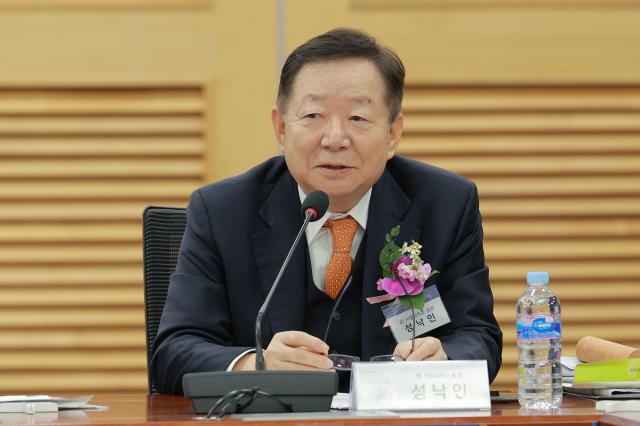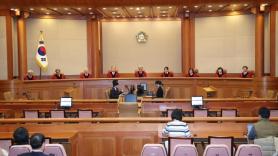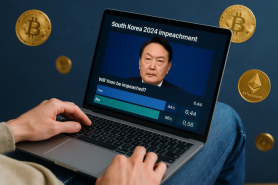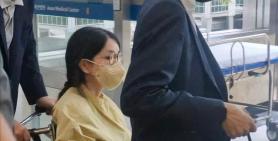
SEOUL, December 26 (AJP) -- Harvard University professors Steven Levitsky and Daniel Ziblatt, authors of How Democracies Die (2018), emphasize the importance of "respecting guardrails" and exercising restraint in presidential power, as norms and institutions like the separation of powers alone are insufficient.
The authors particularly emphasize democratic norms: mutual toleration and understanding that recognizes opposing parties as legitimate competitors, and exercising institutional rights with careful restraint. In an interview with The Chosun Ilbo published on Dec. 20, Professor Levitsky reflected that the recent martial law crisis in South Korea was a destructive consequence of political polarization, noting that if the martial law had succeeded, Korea would have become the wealthiest country to see its democracy collapse. He remains optimistic that Korean democracy won't easily crumble thanks to its strong opposition and civil society. Nevertheless, Donald Trump, both before and after his election, consistently mocked Korea as a "money machine."
That a self-coup, typically seen in Latin America or Africa, occurred in South Korea, one of the world's top 10 economies, has sent shockwaves globally. Moreover, this martial law was declared by a president who was formerly a prosecutor general, not a military officer. Though the martial law failed, its attempt in a developed nation will leave lasting reverberations, true to the meaning of coup d'état as a "shock to the state." Ironically, this martial law will provide rich research material for political scientists and constitutional scholars worldwide. Presidential impeachment is rare even in politically advanced nations like the United States and France, as well as other OECD countries. This failed martial law, leading to a third impeachment under the 1987 constitutional system, starkly demonstrates the instability of democracy since the nation's democratization.
Following the "Spring of Seoul" in 1980, which rang the death knell for Korean democracy, the "Night of Seoul" on Dec. 3, 2024, represents another shock to the Republic of Korea. While the Spring of Seoul was tragic, fortunately, the Night of Seoul shows a new milestone in the maturity of Korean democracy. Foreign media compare the post-martial law political situation to a K-drama. It was a bloodless counter-revolution with participation across all ages and genders. Instead of protest songs, people sang K-pop. Overseas Koreans even made advance payments to cafes for protesters. The demonstrations in Yeouido and Gwanghwamun resembled festive celebrations. Paradoxically, during the martial law, mature democratic citizens affirmed and celebrated Korean democracy. Let us now reconstruct that night for self-reflection.
Months ago, when the main opposition Democratic Party raised the issue of martial law, then-Defense Minister Kim Yong-hyun, who oversees martial law matters, firmly denied it. No democratic citizen doubted his words. However, Kim and a group of military officers had been plotting martial law for anywhere from several months to a year, and numerous officials apparently shared this knowledge days before its declaration. The situation on the day itself is even more distressing. Key conspirators, including the defense minister, along with the capital defense commander, defense intelligence commander, and defense counterintelligence commander, had been aware of the martial law plans for months or at least days. Reportedly, a retired former intelligence commander was the actual architect of the martial law.
Even within the military's hierarchical chain of command, there was no consideration for the basic framework of a democratic constitutional state. On the day of martial law, multiple officials seemed aware hours beforehand. The minister of interior and safety canceled his trip and rushed back to Seoul. The national police commissioner and Seoul metropolitan police chief were also notified in advance. Despite so many top military and police officials being aware of the martial law, there was no whistleblower or "watchdog" to prevent this unfortunate situation. We must criticize these high-ranking officials' absence of democratic civic consciousness. It is imperative that public officials receive democratic civic education as a top priority.
What happened that day provoked even more public outrage. Cabinet members, including the prime minister, gathered at the Presidential Office in Yongsan. According to the interior minister's testimony to the National Assembly, "one or two Cabinet members expressed opposition to martial law." The foreign minister testified that when the president stated how desperate the situation must have been to necessitate such a decision, no one felt positioned to speak up. No cabinet member pleaded with or tried to stop the president at the risk of their life.
This makes us reflect on what it means to be a responsible public servant. Public officials must bear unlimited responsibility for the state and its people. Didn't An Jung-geun, who in 1909 executed Japan's Ito Hirobumi, speak of a soldier's duty to sacrifice for the country? The examples set by our ancestors serve as living textbooks for today's public officials. Even in the Joseon Dynasty, when "the king was the state," officials never ceased to offer loyal counsel and remonstrance against the king's mistakes. Not only the three highest ministers and royal advisers, but even local scholars submitted petitions impeaching the king's wrongs. They risked their lives to resist kings who usurped power.
Power comes with responsibility. Those who hold power must always be ready to take responsibility. In 1982, when a police officer at a small provincial station in Uiryeong, South Gyeongsang Province, went on a shooting rampage, killing 62 innocent residents, then-Interior Minister Seo Jeong-hwa resigned, taking moral responsibility, even though it was a deviation by a low-ranking local official. This sets an example of a responsible public servant who clearly knew when to step down. Minister Seo returned as interior minister 15 years later in 1997 - an example of "life through death." In the Yoon Suk Yeol administration, no one takes responsibility when accidents occur. When young lives were tragically lost in the Itaewon disaster in 2022, neither the national police commissioner nor the interior minister resigned to take responsibility. The current police commissioner and interior minister are now criminal defendants implicated in the martial law incident.
In the National Assembly, Prime Minister Han Duck-soo acknowledged that the Cabinet meeting that day had serious "formal and substantial defects." Indeed, there's no evidence that anyone properly convened the Cabinet meeting according to regulations. They merely rushed to meet the quorum, to fulfill the formal requirement of holding a Cabinet meeting. Since the meeting wasn't formally convened, no minutes existed. It wasn't even held in the Cabinet meeting room but in the presidential reception room. It completely violated the Presidential Decree on Cabinet Meeting Regulations regarding agenda submission (Article 2), vice-ministerial review (Article 4), quorum requirements and two-thirds majority for decisions (Article 6), and the secretary's duty to keep minutes (Article 11).
"The acts of the President under law shall be executed in writing, and such documents shall be countersigned by the Prime Minister and the members of the State Council concerned. The same shall apply to military affairs (Constitution Article 82)." "The following matters shall be referred to the State Council for deliberation ... 5. Emergency orders and emergency financial and economic actions or orders by the President, and declaration and termination of martial law; 6. Important military affairs (Constitution Article 89)." These are mandatory deliberation items. "The Minister of National Defense or the Minister of the Interior and Safety ... may recommend the proclamation of martial law to the President through the Prime Minister when causes occur (Martial Law Article 2.6)."
Constitutionally evaluating the series of events between Dec. 3 and 4, it was procedurally unconstitutional because there's no evidence of proper convening, agenda setting, or deliberation by the State Council. They insist they maintained the appearance of Cabinet deliberation because constitutionally it's a deliberative rather than a decision-making body. The situation was even worse than what's shown in the movie "Spring of Seoul," where armed military officers led by Defense Security Commander Chun Doo-hwan spent all night trying to obtain Acting President Choi Kyu-hah's consent to arrest Martial Law Commander and Army Chief of Staff Jeong Seung-hwa during the Dec. 12, 1979 coup. Furthermore, the president's acts in matters of state must be countersigned by the prime minister and relevant ministers. Yet there's no evidence of such countersignatures for this martial law declaration. Moreover, while presidential acts must be in writing, there appears to be no written document with the prime minister and ministers' countersignatures to date. Countersignatures clarify the responsibility of relevant officials for presidential acts. Acts without countersignatures are unconstitutional and invalid.
"When the President has proclaimed martial law, he shall notify it to the National Assembly without delay (Constitution Article 77.4)." However, there's no evidence the president notified the National Assembly of the martial law proclamation. Nevertheless, "the National Assembly requested the lifting of martial law with the concurrent vote of a majority of the total members." When the National Assembly requests the lifting of martial law, "the President shall comply" (Constitution Article 77.5). It was fortunate that the president lifted martial law following the National Assembly's request. The unconstitutional situation was minimized as the president yielded to public demand.
The "Night of Seoul" thoroughly violated the due process of law required by the Constitution and statutes before even considering the substantive legitimacy of exercising emergency powers. In a democratic constitutional state, formal due process - the series of legal procedures established by the Constitution and laws - must be followed. Due process is required in both form and substance. Whether the martial law had substantive legitimacy is a secondary issue. Procedures that are unconstitutional and illegal in appearance fundamentally destroy the legal order. Presidential acts in matters of state should at least maintain the appearance of justice. For a constitutional state to function properly, form must primarily guarantee substance. Where even the appearance of formal justice cannot be maintained, substantive justice can never take root.
---
The writer served as the 26th president of Seoul National University from 2014 to 2018. This article was translated from his original contribution in Korean.
Copyright ⓒ Aju Press All rights reserved.



